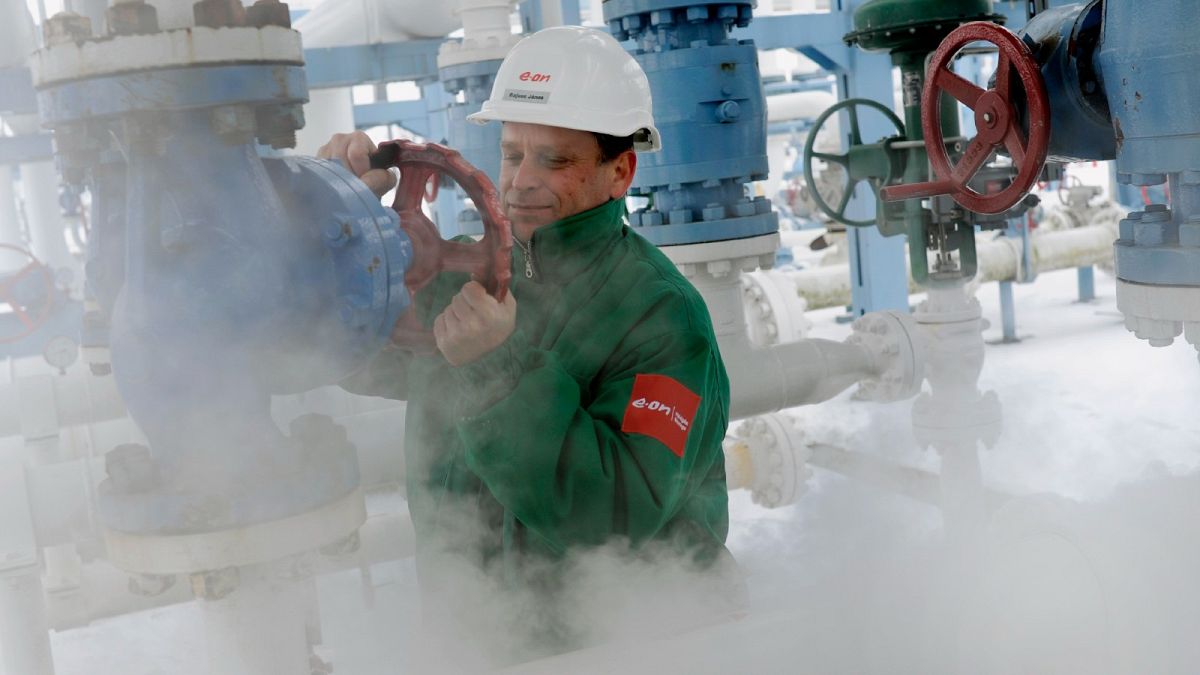EU member states will need to have their gas storage facilities filled at 80% capacity before next winter, according to a new draft law.
European Union member states will need to have their gas reserves filled to at least 80% capacity by November to ensure they have enough supply for next winter, according to a new draft law.
The deal between MEPs and the European Council setting a mandatory minimum level of gas in storage facilities was struck on Thursday.
It sets the minimum at 80% for this year, noting however that "member states and operators should strive to reach 85%", and at 90% for the subsequent years.
Under the regulation -- which now needs to be formally endorsed by the EU Commission and leaders of EU countries -- gas storage capacities will become critical infrastructure and operators will have to secure a mandatory certification "to avoid risks of outside interference".
It also allows the European Commission to set up a mechanism to jointly procure gas if at least two member states demand its activation. The aim is that the mechanism would allow for lower prices with the European Commission leveraging large orders.
Polish MEP Jerzy Buzek (EPP, PL), who led the European Parliament’s negotiating team, described the draft bill to reporters as "a historic day", stressing that the legislative process was started only two months ago.
EU weaning itself off Russian gas
The bill is a result of concerns over energy security sparked by a sharp increase in prices in the latter half of 2021, which was exacerbated by Russia's aggression against Ukraine.
The EU, which imports 40% of its gas supplies from Russia, feared that Moscow could retaliate against stifling sanctions by cutting off the taps.
It did so for Poland and Bulgaria last month when the two member states refused to pay for gas imports in roubles. The Kremlin has mandated payments must be made in the Russian currency as the country's main financial institutions were disconnected from the international banking system by Western sanctions.
Several member states, including Germany, had meanwhile warned during the last few weeks of winter that their gas storage facilities had reached critically low levels.
The bloc has vowed to slash its energy dependency on Russia and to cut by two-thirds its imports of Russian gas by the end of the year. Member states are also negotiating a proposal to introduce a phased embargo on Russian oil as part of a sixth round of sanctions against Moscow which would deprive the Kremlin of a significant source of revenue to finance its war in Ukraine.
Brussels also, on Wednesday, unveiled its landmark RePower EU plan to accelerate its transition away from fossil fuels and into a carbon-neutral continent.
Member states should shun 'unreliable partners'
It is unclear, however, whether member states will be able to fill in their storage capacity without Russian imports before the 1 November deadline.
Buzek told reporters that Eurpoean Parliament aimed to "introduce precise provisions limiting the use of gas from unreliable suppliers".
"We know such a supplier is on our continent," he went on, arguing that such a provision would have sent a "clear and strong signal to such a supplier" that the bloc's member states "refuse to have anything to do with financing some actions on our continent — horrible, unacceptable, brutal actions."
"The French presidency (of the European Council) has not pursued most of the member states to send out such a signal," he lamented, adding: "each member state should do that."
Romanian MEP Cristian Buşoi, rapporteur of the law and Industry, Research and Energy Committee Chair, conceded that although the EU has entered "good discussions" with the US and Norway as well as Azerbaijan, Algeria, Qatar, Israel and Egypt to boost gas supplies to the bloc, "we need some time".
"Member states know what they should do for this year," he added, referring to the bloc's various plans to "little by little" replace and then stop imports from Russia.
Member states with low storage capacity will meanwhile be able to strike deals with other member states or third countries, to store gas for them in order to reach the minimum target. These non-EU countries include Ukraine — which has a gas storage capacity of 30 billion cubic metres while the EU as a whole has a 100 billion cubic metres capacity — as well as Serbia or Moldova.
Several member states, including Mediterranean island nations Malta and Cyprus, have no storage capacity at all.
